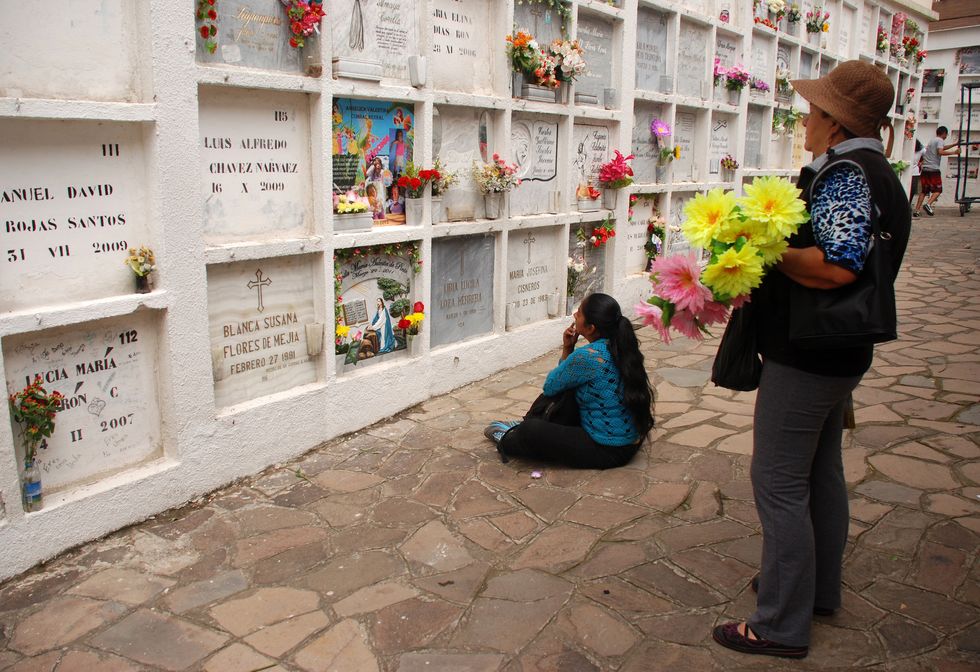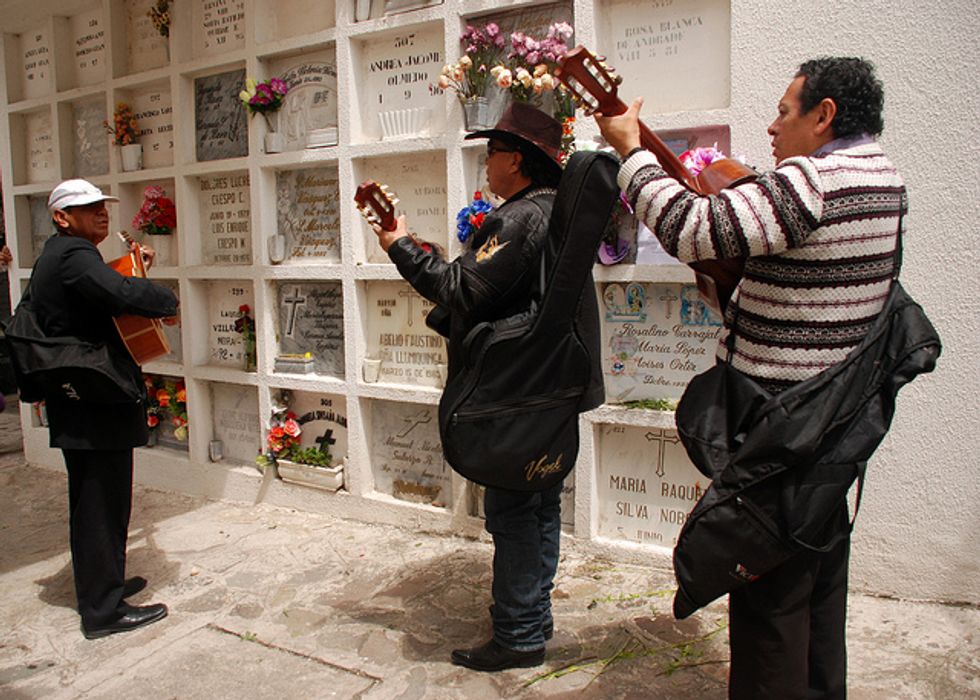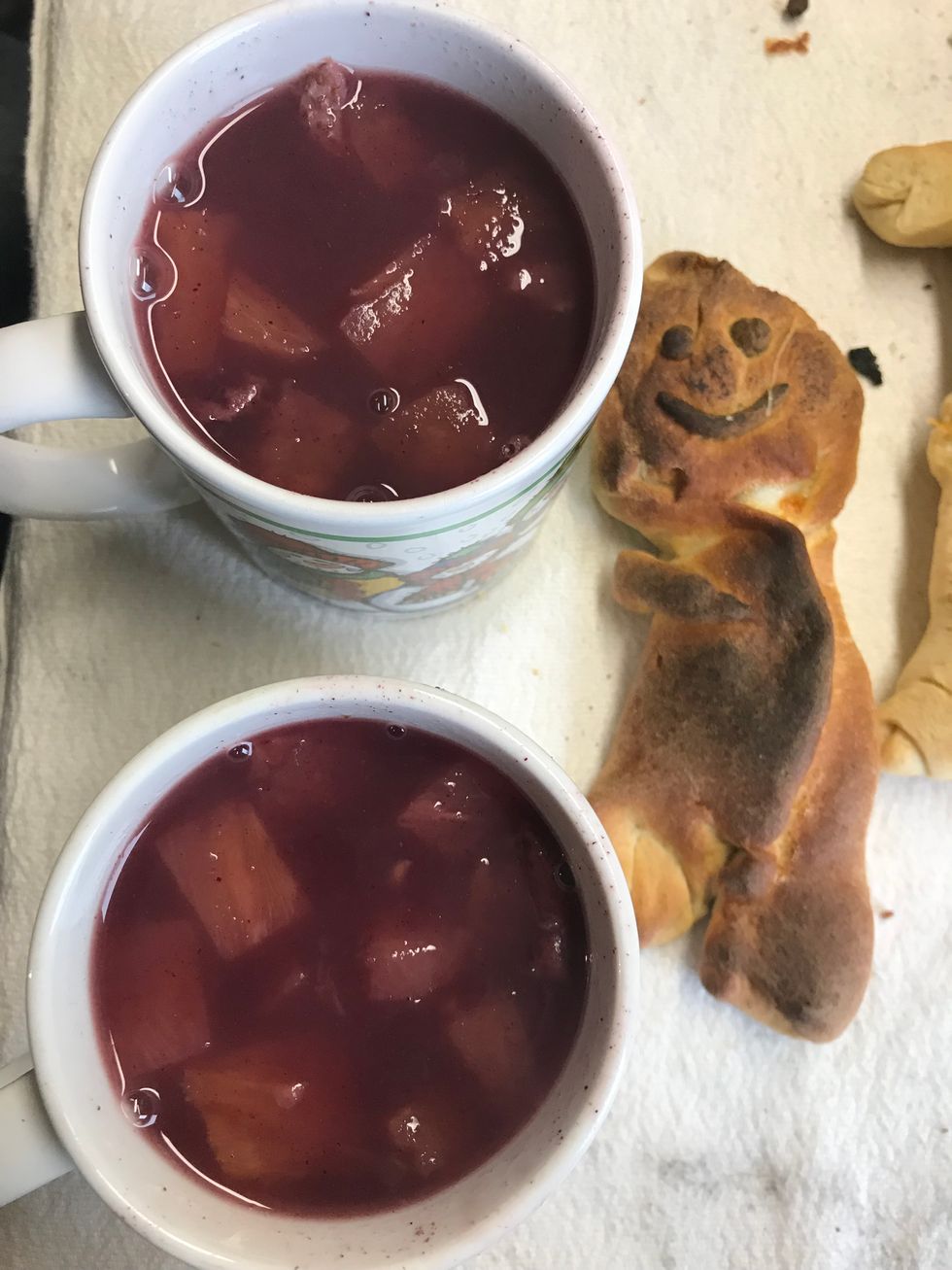I keep in mind some scenes from el Día de los Difuntos, or Day of the Deceased, years ago in Ecuador, probably when I was 6-years-old. I was with my dad’s side of the family and we were packing food in a truck along with my grandmother, aunts and cousins to go to the cemetery. And of course, we couldn't forget a radio for the music.
We made our stop at a cemetery, somewhere in the canton of Colta, where my grandfather is buried. He passed away when I was 4-years-old, which I can vaguely remember. Once we arrived at his grave, my grandmother began to clean his tombstone, decorated it with a bouquet of flowers and placed his favorite food on top.
Meanwhile, the radio was on playing songs from Julio Jaramillo, a famous Guayaquil native singer whose music is widely known and played even today. As a family, we gathered around my grandpa's tombstone. We sat around it and first prayed. Then we ate my grandmother's homemade food while remembering my grandfather and singing as if he were there with us.
According to the website Life in Ecuador, The Day of Deceased, or “Dia de los Difuntos,” is a widely popular holiday and celebrated on Nov. 2. It's known to be loaded with tradition.
NPR reports that anthropologists date back this spiritual communing with the dead back thousands of years when the Spanish colonialists arrived in the 16th century.
Part of the tradition marks it with people eating theguaguas de pan, or "bread babies," made of dough and with a jam filling in the middle. Also, the famous colada morada, a purple hot drink made of blue or black corn flour and various fruits like pineapple, strawberries, blueberries and raspberries.
This past Sunday, I left college to visit my family at home. They decided to celebrate The Day of the Deceased on Nov. 5 because due to work, they couldn’t gather together on Nov. 2. Although we may not have followed the tradition fully on the exact date, we switched some things but managed to keep the tradition alive. We also made bread babies with the family and it was a great way of learning how to make it--but also on how important this day is to my family and to many other Ecuadorians in the world.
¡Que viva el día de los muertos! Long live the day of the deceased!



















